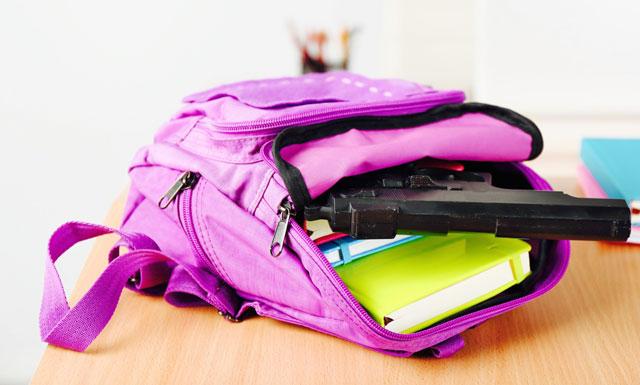You are here
Hands-off parenting tied to higher risk of teen gun use
By Reuters - Mar 06,2019 - Last updated at Mar 06,2019

Photo courtesy of picarena.com
When parents of boys do not enjoy parenthood or do not spend a lot of time playing or talking with them, their sons may be more likely to use guns in adolescence, a US study suggests.
Among 503 teen boys in Pittsburgh public schools, one in five reported carrying a gun at some point during adolescence, researchers found.
Parental disengagement — caregivers who did not play with kids, participate in daily activities, discuss things with children or enjoy parenting — was directly linked to teen gun carrying.
Some of this connection — about 29 per cent — could be explained by related factors like childhood behaviour problems or friendships with delinquent children, the study found.
“One reason that disengaged parenting in childhood promoted gun carrying in adolescence is that parenting in childhood sets the stage for conduct problems and delinquent peer networks to emerge in early adolescence, and these early adolescent risk factors place youth at risk for gun carrying in later adolescence,” said study leader Jordan Beardslee of the School of Criminology and Criminal Justice at Arizona State University in Phoenix.
“However, only some of the effect of parental disengagement was due to the emergence of early externalising problems and early affiliation with delinquent peers,” Beardslee said by e-mail. “The remaining impact of parental disengagement could be due to continuity of parenting practices in later adolescence or to... factors in adolescence.”
More than 7,000 youth are injured or killed by guns in the US each year, Beardslee and colleagues note in “Paediatrics”.
Teens who live in disadvantaged neighbourhoods, have behaviour problems or have friends who get into trouble at school or with law enforcement are more likely to carry guns, previous research has found. But less is known about which childhood experiences might contribute to adolescent gun violence.
Almost all teen gun use involves boys, and the current study focused only on males.
Starting when boys were about seven and a half, researchers surveyed them every six months for four years and then annually for nine years. The boys reported any gun carrying, as well as exposure to peer violence, theft or drug dealing.
During the earlier years of the study, researchers also surveyed parents about engagement levels. During adolescence, researchers surveyed teachers about any conduct or behaviour problems they observed.
The study was not designed to prove whether parenting styles directly impact the risk of teen gun carrying, and it also did not examine whether having weapons on hand might lead to firing these weapons.
Even so, previous research suggests that childrens’ relationships with their parents can impact their success in school and the odds that they will get into trouble or have friends who are a bad influence and encourage antisocial behaviours, said Alex Piquero, a professor of criminology at the University of Texas at Dallas who was not involved in the study.
“This study clearly shows that strained parent-child relationships early in life lead to a myriad of negative behaviours that ultimately lead to an increased risk for gun carrying,” Piquero said by e-mail. “It shows the long-term damage that parental disengagement has on their children and others around them.”
This also means parents can play an outsize role in preventing teen weapon use, Piquero said.
“The take-home message for parents could not be clearer: monitor your children’s behaviour, develop strong emotional and interpersonal connections with them, and help establish their ability to control their impulses and consider the long-term outcomes of their decisions,” Piquero advised. “The earlier and more frequently that parents can do this, the better for their children and their children’s long-term life success.”
Related Articles
Obese girls are more likely to develop depression during childhood and adolescence than their peers who weigh less, a research review sugges
Teens may be less likely to get in fist fights when they live in countries where it is illegal for parents to spank or slap children as puni
One in five teens are victims of bullying, and these adolescents are about twice as likely to bring guns and knives to school than peers who














